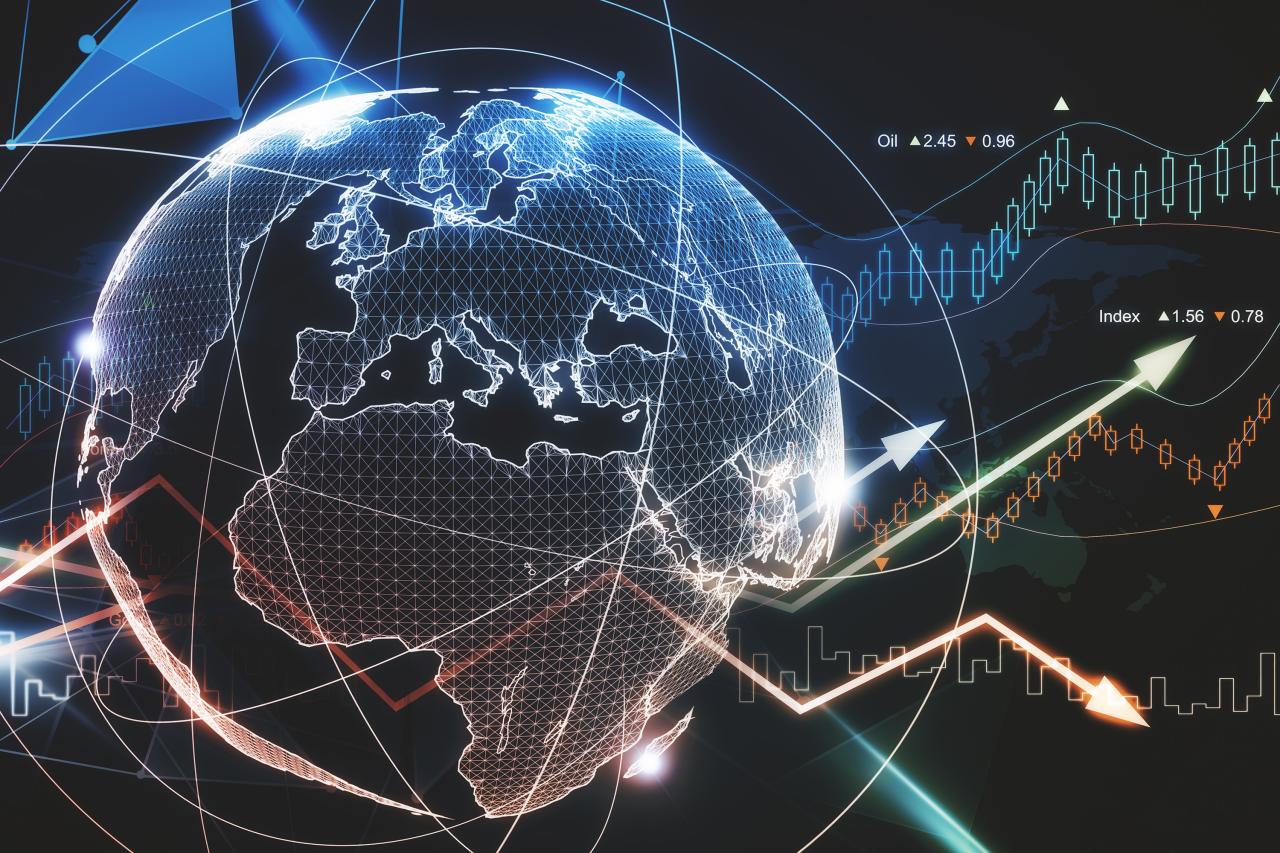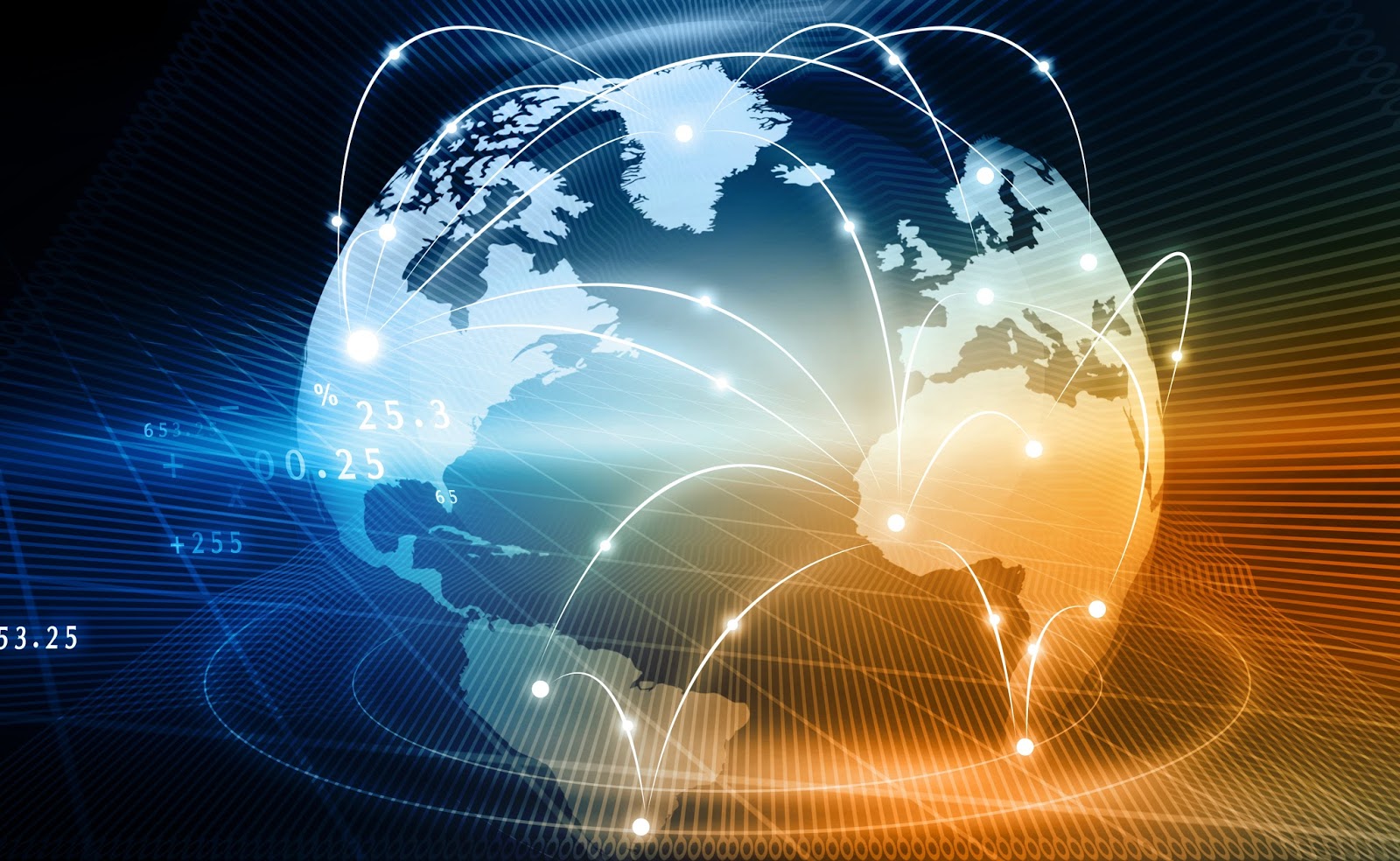The global industrial landscape is a ceaseless churn of innovation, disruption, and strategic recalibration. Far from a static entity, it is a dynamic ecosystem shaped by technological breakthroughs, geopolitical shifts, environmental imperatives, and evolving consumer behaviors. Understanding the currents of global industry news requires a holistic perspective, recognizing the interconnectedness of sectors and the cascading effects of major trends. This article delves into the dominant narratives defining today’s industrial world, from the relentless march of digital transformation to the critical pivot towards sustainability, and the intricate dance of geopolitics shaping supply chains and trade.
The Digital Vanguard: AI, Automation, and Data Dominance
Perhaps no force is as pervasive and transformative as digital innovation. Artificial Intelligence (AI) has moved beyond the realm of science fiction to become a tangible, revenue-generating, and efficiency-driving tool across virtually every industry. From optimizing supply chains and predicting market trends to personalizing customer experiences and automating complex tasks, AI’s applications are boundless.
Generative AI, exemplified by models like GPT and DALL-E, has recently captured headlines, promising to revolutionize content creation, software development, and even scientific discovery. Companies are grappling with how to integrate these powerful tools responsibly and effectively, leading to a surge in demand for AI specialists and ethical AI frameworks.
Beyond AI, the broader digital transformation encompasses cloud computing, the Internet of Things (IoT), and advanced data analytics. Cloud infrastructure continues to be the backbone for scalable operations, enabling businesses to store, process, and analyze vast amounts of data without significant upfront hardware investments. IoT devices, embedded in everything from smart factories to wearable tech, generate real-time data that fuels AI algorithms, allowing for predictive maintenance, optimized resource allocation, and unprecedented levels of operational insight. Cybersecurity, naturally, has become a paramount concern, as the increasing interconnectedness of digital systems presents fertile ground for cyber threats, necessitating continuous investment in robust defensive measures.
In manufacturing, this digital wave manifests as Industry 4.0, where smart factories leverage automation, robotics, and data integration to achieve unprecedented levels of efficiency, flexibility, and customization. In healthcare, digital health platforms, AI-powered diagnostics, and telemedicine are reshaping patient care and medical research. The financial sector is witnessing a rapid evolution of fintech, with AI and blockchain driving innovations in payment systems, algorithmic trading, and personalized financial advice. This digital vanguard is not merely an upgrade; it’s a fundamental reimagining of how industries operate, compete, and create value.
The Green Imperative: Sustainability and the Energy Transition
The urgency of climate change and growing environmental consciousness have propelled sustainability to the forefront of global industry news. Environmental, Social, and Governance (ESG) criteria are no longer niche considerations but core metrics influencing investment decisions, corporate reputation, and regulatory compliance. Industries worldwide are undertaking a massive energy transition, shifting away from fossil fuels towards renewable sources.
Solar and wind power continue their exponential growth, driven by technological advancements, decreasing costs, and supportive government policies. Battery storage technology is rapidly improving, addressing the intermittency challenges of renewables and enabling more stable grids. Hydrogen, particularly green hydrogen produced via renewable energy, is emerging as a promising clean fuel for heavy industry, transportation, and energy storage, attracting significant investment and research.
Beyond energy, the concept of the circular economy is gaining traction, advocating for minimizing waste and maximizing resource utility through design, reuse, recycling, and remanufacturing. Companies are scrutinizing their entire supply chains, from raw material sourcing to end-of-life product management, to reduce their environmental footprint. Sustainable packaging, eco-friendly materials, and carbon capture technologies are areas of intense innovation.
However, the green transition is not without its challenges. The scale of investment required is enormous, infrastructure needs are vast, and the ethical sourcing of critical minerals (like lithium, cobalt, and rare earths) for batteries and renewable technologies presents complex geopolitical and social issues. Despite these hurdles, the momentum towards a greener economy is irreversible, creating new markets, driving innovation, and redefining corporate responsibility.
Geopolitical Chessboard: Supply Chains and Economic Resilience
Recent years have starkly illuminated the fragility of global supply chains and the profound impact of geopolitical tensions on industry. The COVID-19 pandemic exposed vulnerabilities, leading to widespread disruptions, while the ongoing US-China trade rivalry and the war in Ukraine have further accelerated a trend towards supply chain diversification, reshoring, and "friend-shoring."
Governments and corporations are actively seeking to reduce dependence on single sources for critical components and raw materials, particularly in strategic sectors like semiconductors, pharmaceuticals, and rare earths. This shift is leading to increased investment in domestic manufacturing capabilities and the development of more localized or regionally integrated supply networks. Mexico, for instance, has seen a surge in foreign direct investment as companies seek to near-shore production for the North American market.
The competition for technological supremacy, especially between the US and China, is reshaping global trade and investment patterns. Restrictions on technology transfer, export controls, and debates over data sovereignty are creating a more fragmented global economic order. Industries are having to navigate complex regulatory landscapes and adapt their strategies to operate in an environment where geopolitical considerations often trump pure economic efficiency.
This recalibration aims to build greater resilience and reduce systemic risks. While it may lead to higher production costs in some instances, the perceived benefits of enhanced security and reduced vulnerability are driving these strategic decisions. The implications are far-reaching, influencing everything from investment flows and talent migration to international trade agreements and the very structure of global commerce.
The Evolving Workforce: Skills, Automation, and the Future of Work
The rapid pace of industrial change is fundamentally altering the nature of work. Automation and AI are taking over routine and repetitive tasks, prompting a critical need for workforce reskilling and upskilling. Soft skills such as critical thinking, creativity, emotional intelligence, and complex problem-solving are becoming increasingly valuable as machines handle the more predictable aspects of labor.
The pandemic also accelerated the adoption of remote and hybrid work models, challenging traditional notions of the office and work-life balance. Companies are grappling with how to foster culture, collaboration, and productivity in distributed environments, leading to innovations in communication tools, HR policies, and leadership approaches.
Addressing the widening skills gap is a top priority for industries and governments alike. Investments in vocational training, STEM education, and lifelong learning initiatives are crucial to ensure that the workforce can adapt to the demands of the future. The demographic shifts in many developed nations, characterized by aging populations and declining birth rates, further exacerbate talent shortages, pushing industries to explore new talent pools and embrace diversity and inclusion as strategic imperatives.
Sectoral Spotlights: A Glimpse Across Industries
While the overarching themes apply broadly, specific industries are experiencing unique dynamics:
- Technology: Still the engine of innovation, but facing increased regulatory scrutiny over antitrust, data privacy, and content moderation. The race for AI dominance is intense, with significant investments in research and development.
- Automotive: Undergoing a revolutionary shift towards Electric Vehicles (EVs), autonomous driving, and connected car technologies. The industry is grappling with supply chain challenges for batteries and semiconductors, alongside the need to retool factories and retrain workforces.
- Healthcare: Witnessing a surge in digital health solutions, precision medicine, and biotechnological advancements. The lessons from the pandemic continue to drive investment in vaccine development, supply chain resilience for medical devices, and public health infrastructure.
- Financial Services: Fintech continues to disrupt traditional banking, with digital currencies, blockchain, and AI-powered analytics reshaping transactions, lending, and investment. Regulatory bodies are working to keep pace with these innovations.
- Energy: Beyond renewables, the sector is focused on grid modernization, smart energy management systems, and the development of next-generation nuclear and fusion technologies to ensure energy security and sustainability.
Conclusion: A Landscape of Dynamic Interplay
The global industrial news landscape is characterized by a complex interplay of powerful forces. Digital transformation, led by AI, is rewriting the rules of efficiency and innovation. The imperative for sustainability is driving a fundamental shift in energy production, resource management, and corporate responsibility. Geopolitical tensions are reshaping supply chains and fostering a drive for greater economic resilience. And the evolution of the workforce demands continuous adaptation, upskilling, and new models of collaboration.
Navigating this intricate environment requires agility, foresight, and a willingness to embrace continuous change. Businesses that can effectively harness digital tools, integrate sustainable practices, adapt to geopolitical realities, and invest in their human capital will be best positioned to thrive in this era of unprecedented transformation. The future of global industry is not just about technological advancement; it’s about intelligent adaptation, responsible stewardship, and strategic resilience in an increasingly interconnected and volatile world.

